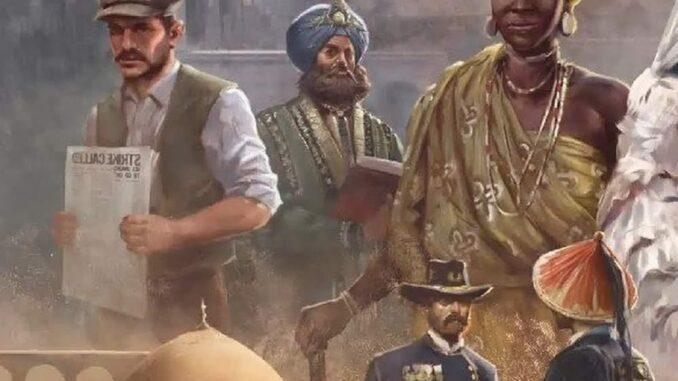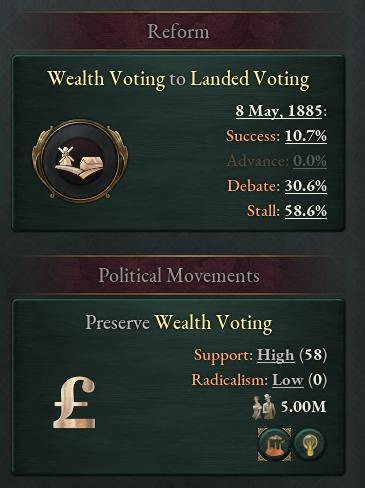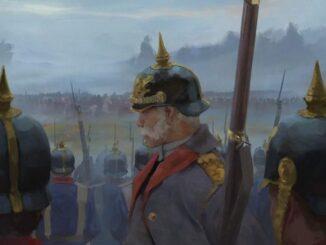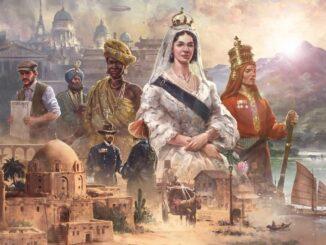
Political Movement
A political movement is a way for pops to make a direct demand of the government, either because they desire change or because they don’t desire the change you are currently pushing through. This allows for politically disenfranchised pops to push for reform, even if they lack political strength or institutional recognition.
Political movements have a singular goal and will exist only so long as this goal remains unfulfilled.
A law reform in progress and a movement to preserve the current law.

Political Movement Types
A political movement is always aimed at one particular law, and can take three different forms:
- Movement to preserve – This is a political movement that can form when there is sufficient opposition to the passing of a particular law. For example, if Great Britain starts replacing the Monarchy with a republic, it’s very likely that this will result in a movement to preserve the monarchy.
- Movement to enact – This is a political movement that can form when there is a popular demand for the enactment of a particular law. For example, if you have a politically active and literate but very poor underclass of laborers, these laborers might form a movement to create a minimum wage.
- Movement to restore – This is a political movement that works exactly like a movement to enact, but aims specifically to bring back a law that was previously in effect in the country. The main difference between a movement to restore and a movement to enact is that the former will tend to get some extra support from being able to harken back to the ‘golden era’ of the past instead of having to champion new ideas. For example, a movement to restore the monarchy in a Britain that successfully transitioned into a republic.
Support Score
The impact political movements have on the country while pushing their goals manifests as their support score. A political movement can have support from both interest groups (which represents a part of the political establishment backing the movement) and individual pops (which represents individuals championing the movement in the streets).
Interest groups will provide support for the movement based on their clout. Which interest groups will or will not back a political movement depends on whether they would approve of a change to the new law (in case of enact/restore) or disapprove of the current change in progress (in case of preserve). Interest groups that have high approval or which are part of the government will not support political movements, though government IGs may put pressure on the player in other ways if they’re not pleased with their actions.
Pops are more complex, as they can back a political movement either because it aligns with their interest group or because they have something to gain directly from it — for example, a discriminated pop backing a movement that would give them more rights. The support provided directly by pops is based on raw numbers — the percentage of the supporting pops out of the country’s whole population. This means that a single discriminated laborer backing a movement provides just as much support as a fully enfranchised aristocrat when taking action outside their interest group.
In other words, while political strength still plays an important role in political movements in the form of interest groups throwing their clout behind movements championing laws they like, it is entirely possible for a political movement to form with no interest group backing at all. For example, even if nobody is willing to champion workers’ rights in the halls of power, enough angry workers in the streets may just be enough to affect change anyway.
The support score of a political movement has two direct effects on legislation:
- It affects the chance of successfully passing a law (making it easier to pass the law the movement wants in the case of a movement to enact/restore, and more difficult to replace in the case of a movement to preserve).
- Having a movement to enact/restore also allows a country to attempt to pass the law the movement wants, even if said law has no backing among the interest groups in government.
Radicals and Loyalists
The radicalism of a political movement comes into play if the player doesn’t intend to bow to the wishes of a movement in their country. It is by no means a sure thing that every peaceful movement will become radical, and movements may very well fizzle out without accomplishing their goal, but ignoring the wishes of a significant part of the population and/or political establishment does come with some associated risks.
Radicalism is based on the number of radical pops and clout of angry interest groups supporting the movement. A movement with low radicalism is one that is intent on getting its wishes heard through peaceful means, while a movement with high radicalism is willing to use more extreme methods, up to and including sparking a revolution.
Radicals and loyalists, just like with interest group membership, are not whole pops but rather individuals within pops. Radicals are individuals who have become disillusioned with the government and political apparatus of the country and want to seek change through any means necessary, while loyalists are “patriots” who are generally willing to put their political views and goals aside for the sake of the nation.
There is a large variety of ways that pops can become radicals or loyalists, here’s a few of the more common reasons listed below:
Loyalists:
- Pops that experience an increase in material living standards will become more loyal.
- Pops from political movements that have their demands fulfilled become more loyal.
Radicals:
- Pops that experience a decrease in material living standards will become more radical.
- Pops from political movements whose demands are ignored may radicalize over time.
- Pops whose standard of living is below the minimum they expect to have will radicalize over time, particularly if it’s so low that they’re actually starving.
- Pops that are literate but discriminated against tend to radicalize over time.
Radicals and loyalists generally function in directly opposite ways. For example, radicals are more likely to create and join political movements (as well as playing an important role in radicalizing said movements) while loyalists will never join political movements. Loyalists make the interest groups they are part of happier, while radicals make them less happy and so on. This means that one way to prevent political activism and curtail movements that oppose your agenda is to increase the standard of living of your pops.
Pops will remain radical or loyalist until they either die or have a status change as a result of becoming more radical/loyal (for example, a loyalist pop might stop being loyalist if their material standard of living suddenly takes a nosedive), but they do, in fact, die. As generations die off and are replaced by new ones, less and less people will remember all the great things done for the country 30 years ago and will start wondering instead what has been done for them lately.





Be the first to comment